conference
Trump’s Bitcoin 2024 keynote includes plan for US Bitcoin reserve
Published
5 months agoon
By
admin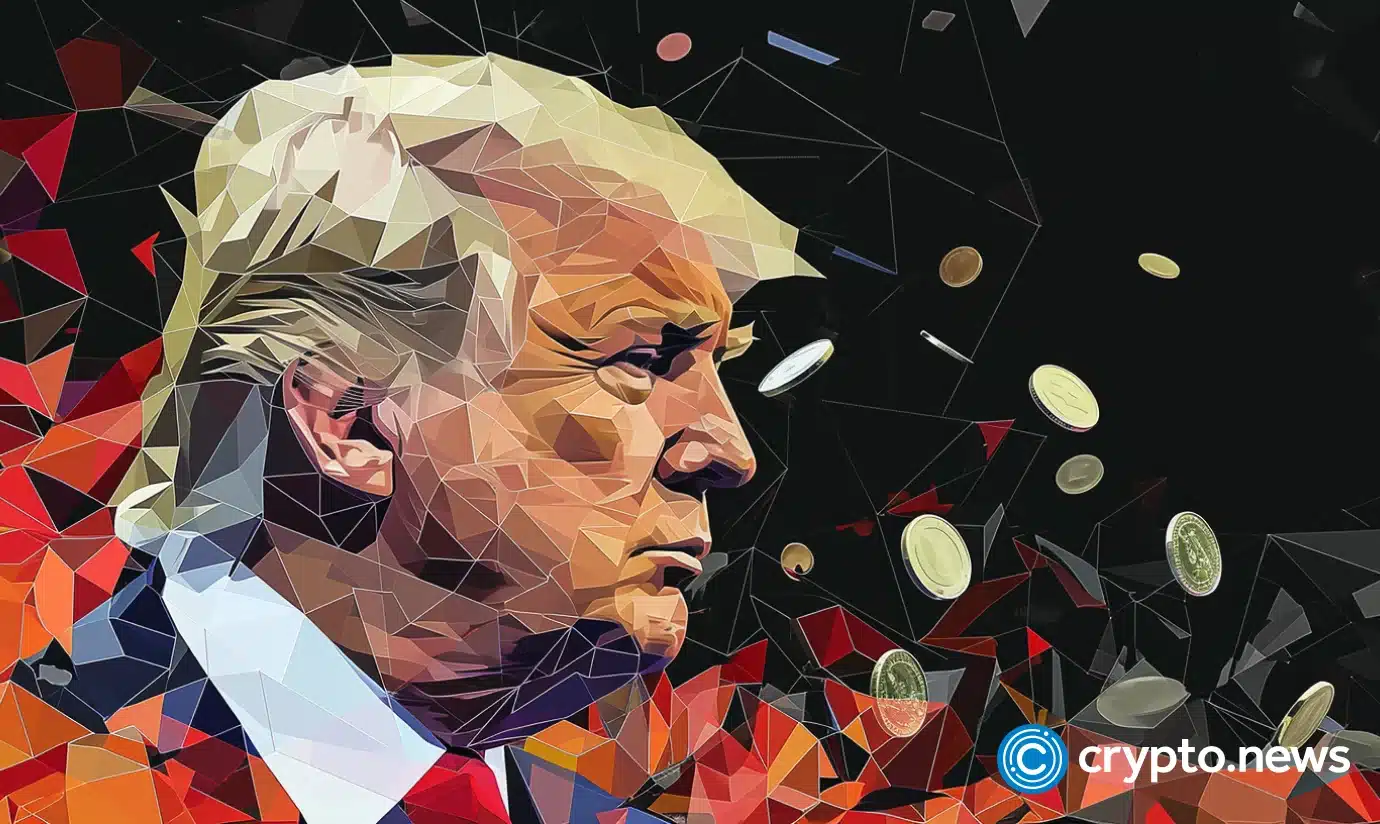
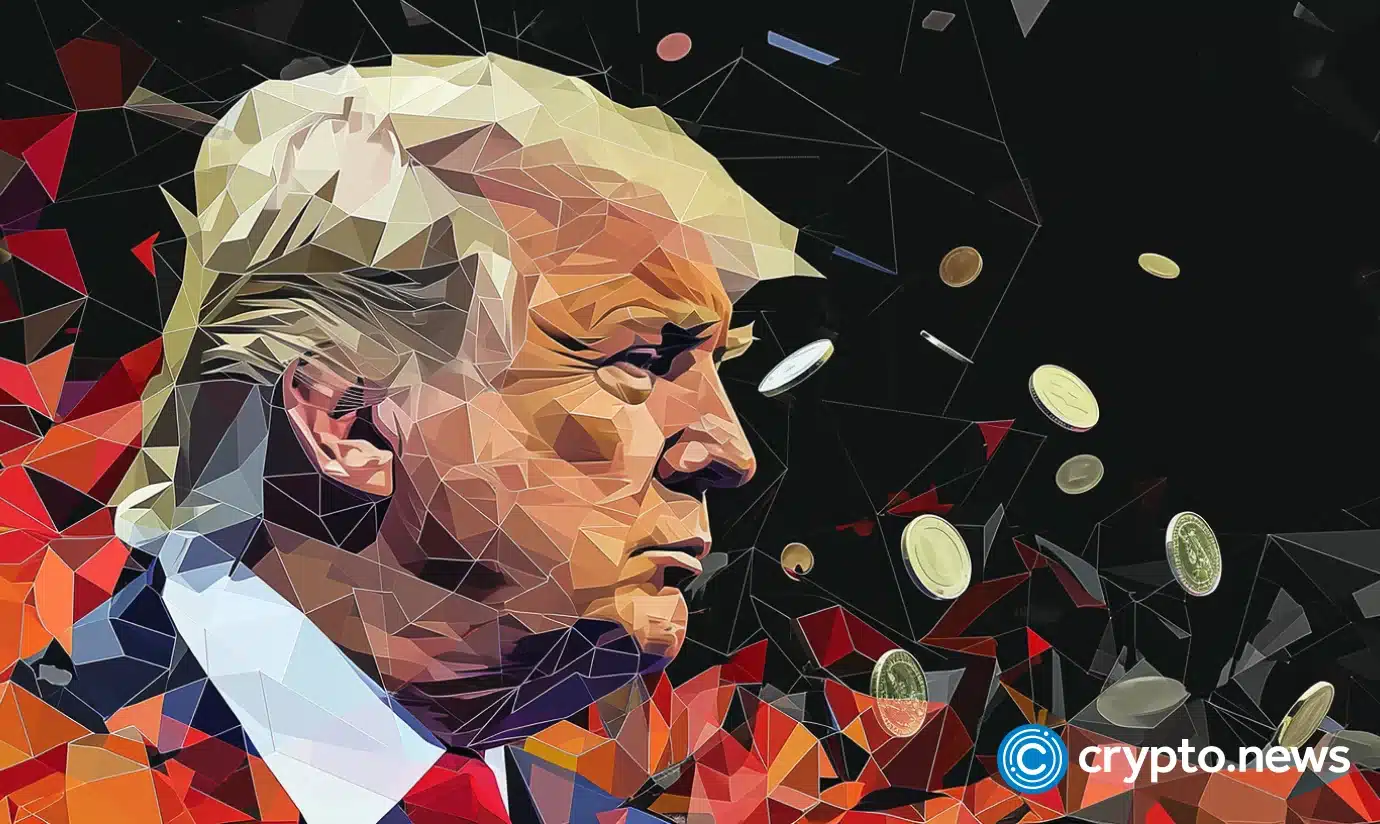
Donald Trump, the Republican presidential nominee, spoke at the Bitcoin 2024 conference in Nasvhille, praising the crypto industry and announcing his plan for a national Bitcoin reserve.
Trump goes all-in on crypto
At the just-concluded Bitcoin 2024 conference in Nashville today, July 27, former president Donald Trump delivered a highly anticipated keynote address that highlighted his currently very positive stance on cryptocurrency.
Trump used the occasion to underline his support for the crypto industry and advocate for deregulation. He managed to mention several key pain points for the industry, including the current U.S. SEC Chair, SAB 121, CBDCs, stablecoins and the current administration’s approach to crypto.
As crypto supporters had very much hoped, the former president indeed announced a plan to create a “strategic national Bitcoin stockpile” in the United States, if elected:
“It will be the policy of my administration, United States of America, to keep 100% of all the Bitcoin the U.S. government currently holds or acquires into the future […] This will serve, in effect, as the core of the strategic national Bitcoin stockpile.”
‘Crypto capital of the planet’
Early in his speech, Trump emphasized that his support for the crypto industry is motivated by the desire to advance the U.S. as the global leader in the sector, promising the Bitcoin 2024 audience that if elected, he would transform the U.S. into the “crypto capital of the planet”:
“If we don’t embrace crypto and Bitcoin technology, China will, other countries will, they’ll dominate […] We want China to be successful, but we have to be the most successful.”
In a clear nod to the crypto industry’s frustration with the current leadership in Washington, Trump also stated, “On day one, I will fire Gary Gensler and appoint a new SEC Chairman,” drawing cheers and chanting from the audience. Gensler, the current Chair of the U.S. Securities and Exchange Commission, appointed by president Biden, has pursued a much-criticized regulation-by-enforcement policy toward the crypto industry.
The former U.S. president also stated that Democratic Party presumptive presidential nominee Kamala Harris is “against crypto.” Earlier today, FT reported that members of Harris’ team had reached out to top U.S. crypto company representatives in an effort to “reset relations.”
Trump also referenced the much-discussed and controversial banking rule, SAB 121, which requires U.S. banks to treat cryptocurrency custody differently than other assets. Trump said he would “immediately shut down Operation Choke Point 2.0,” using the crypto industry’s term for what is perceived to be anti-crypto regulatory policy in the U.S., including rules like SAB 121.
Trump’s endorsement of cryptocurrency could significantly impact the political landscape, further cementing him as a key advocate for the crypto industry, in contrast to the Democratic leadership.
As reported by CNBC today, the Republican presidential nominee also hosted a fundraiser in Nashville, where ticket prices reached up to $844,600.
Trump’s crypto flip: From critic to advocate
Donald Trump has notably shifted his stance on cryptocurrency in recent years. In 2019, while still serving as president, Trump criticized Bitcoin and other digital currencies, stating that he was “not a fan” and arguing that valuations of Bitcoin and other cryptocurrencies are “based on thin air.” He also expressed concerns that unregulated crypto assets could enable illegal activities.
By 2021, Trump’s criticism intensified. He called Bitcoin “a scam” and advocated for the U.S. dollar to remain the dominant global currency. His administration also implemented stricter regulations on cryptocurrencies.
However, Trump has since fully reversed his position, actively seeking — and clearly getting — support from the crypto sector as he campaigns for the 2024 election.
As Trump reminded the audience at Bitcoin 2024 today, he is the first presidential candidate to receive donations in cryptocurrency. His campaign has been accepting cryptocurrency donations since May, raising over $4 million in crypto since then.
Source link
You may like


BTC Risks Falling To $20K If This Happens


Most Layer 2 solutions are still struggling with scalability


Here’s why Stellar Price Could Go Parabolic Soon
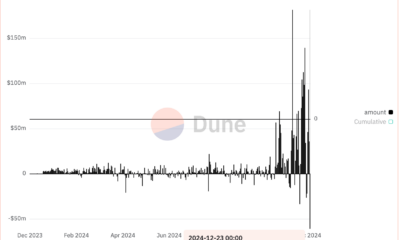

Perp-Focused HyperLiquid Experiences Record $60M in USDC Net Outflows


Experts say these 3 altcoins will rally 3,000% soon, and XRP isn’t one of them


Robert Kiyosaki Hints At Economic Depression Ahead, What It Means For BTC?
Bitcoin conference
Eric Trump Confident Bitcoin Price Will Hit $1 Million
Published
2 weeks agoon
December 10, 2024By
admin

Eric Trump, a prominent American businessman, executive vice president of the Trump Organization, and son of United States President-elect Donald Trump delivered a striking prediction at the Bitcoin MENA event in Abu Dhabi on Dec. 10. He confidently declared that Bitcoin will someday reach a value of $1 million per BTC.
“I am confident that Bitcoin is going to hit $1 million.”
JUST IN: 🇺🇸 President Donald Trump’s son, Eric Trump says, “I am confident that #Bitcoin is going to hit $1 million.” 🚀 pic.twitter.com/1SqScvddl2
— Bitcoin Magazine (@BitcoinMagazine) December 10, 2024
Trump’s keynote address showcased his belief in Bitcoin as a revolutionary “financial paradigm” with the potential to reshape the global economy. He expressed certainty that its value will soar in the years ahead.
Bitcoin: A Global Asset and Hedge
Trump described Bitcoin as far more than a typical asset, emphasizing its role as a “global asset” that safeguards against economic uncertainty and unforeseen disruptions.
“It’s a store of value. It’s a hedge against inflation. It’s a hedge against political turmoil, political instability, acts of God, hurricanes, fires, floods, tornadoes, guys. That’s what makes it so powerful,” Trump stated.
He also highlighted Bitcoin’s decentralized system, which operates without traditional intermediaries, contrasting it with the inefficiencies and high fees associated with conventional financial systems.
Scarcity Driving Value
Trump pointed to Bitcoin’s fixed supply of 21 million as a critical factor behind its enduring appeal. Scarcity, he argued, is a defining feature that ensures its long-term value and places it in a league of its own.
A Familiar Pattern of Adoption
Drawing parallels to the slow adoption of groundbreaking technologies like email, Trump argued that hesitation to embrace change is nothing new. He shared a story about a friend who dismissed Bitcoin only to see his own bank adopt it shortly afterward.
“People are slow as hell to adapt to new technology,” Trump remarked, underscoring the importance of early adoption.
NEW: Eric Trump just delivered one of the most bullish #Bitcoin speeches ever in the capital of the UAE 🇦🇪
"America is going to lead the digital revolution" 🙌 pic.twitter.com/dsyPWQiguI
— Bitcoin Magazine (@BitcoinMagazine) December 10, 2024
The Future Belongs to Those Who Adapt
Trump’s confidence extended beyond price predictions, as he forecasted a world where businesses and governments would need to adapt to the growing influence of Bitcoin. He asserted that early adopters will reap the rewards of this transformation.
“We’re going to see that banks have to adapt. We’re going to see that governments have to adapt, and governments will adapt. […] Those who embrace Bitcoin, those who embrace this digital revolution, those who embrace digital currency, the people who come in early are going to be the people who win.”
Trump concluded his address with a message of celebration, acknowledging Bitcoin’s recent milestone of surpassing $100,000 for the first time.
“Bitcoiners, I love you. The Trump family loves you. It’s truly a great honor to be here today,” he said.
Watch the Bitcoin MENA 2024 Conference Day 2 Livestream. Featuring leading Bitcoin industry figures across the Middle East, North Africa, and around the globe Bitcoin MENA is spurring the next chapter of global Bitcoin adoption!
Source link


TOKEN2049 has ended in Singapore. Here are three highlights from one of the most anticipated crypto conferences of the year.
One of the largest industry conferences, TOKEN2049, was held from Sept. 18 to 19 in Singapore. It brought together leading figures in the crypto space, who shared their thoughts on trends, developments and priorities for the industry.
What will the crypto industry be like in three years?
One of the highlights of the event was a panel entitled “The Next 3 Years in Crypto,” during which several leaders of major crypto projects discussed where the industry is heading in the near term. Stablecoin issuer Circle‘s CEO Jeremy Allaire, top crypto exchange OKX‘s founder and CEO Star Xu, and Ethereum co-founder Vitalik Buterin participated in the panel discussion and spoke about the digital asset sector’s future, sharing stories from their past experience as long-time participants and leaders in the space.
Self-custody is key
During the panel, OKX’s Xu noted the importance of self-custody technologies for storing cryptocurrency, given their relatively high level of security. However, he also pointed out that promoting self-custody in the crypto industry — meaning holding your crypto yourself instead of using a third-party, like an exchange — does not imply that there is no need to regulate the space.
Speaking about the future of digital assets, Xu noted that over the past ten years, the industry has seen many important technological developments. However, he believes that web3 applications and use cases should be developing even faster.
Less focus on NFTs
Buterin mentioned that one of the main advantages of digital assets is their international, borderless nature. He reiterated the notion that the industry has the potential to meet the needs of people globally who do not have access to the traditional financial system.
He also pointed out the need for practical use cases to drive the mass adoption of digital assets. Buterin called for less focus on expensive NFTs, arguing that they have no real benefits for the industry or for humanity.
The co-founder of Ethereum also said that he believes that improving security in the crypto industry should be a major focus, alongside trying to reduce transaction fees.
Vitalik comments on the accessibility of crypto and sings a crypto song
Buterin also touched on topics such as the accessibility of cryptocurrencies, their use as a means of payment, and security in the ecosystem as a whole.
He argued that it’s no longer valid to say that it’s too early for more widespread adoption of crypto. He compared the extremely limited awareness and adoption of Bitcoin (BTC) in 2013 with the situation just eight years later, in 2021, when a cup of coffee could be bought for Ethereum (ETH) in Argentina.
In between talking about the future of blockchain and cryptocurrencies, he also sang a song about crypto:
And then an improved version of Buterin’s song appeared on social media:
Arthur Hayes predicts market reaction to Fed rate cuts
Also on the first day of the event, the co-founder of derivatives exchange BitMEX, Arthur Hayes, gave a keynote speech with the title “Thoughts on Macroeconomics Current Events.”
Speaking the same day that the U.S. Federal Reserve was expected to announce very anticipated interest rate cuts — which indeed happened later that day — Hayes predicted that the cuts would cause the markets to drop in the short-term:
“I think that the Fed is making a colossal mistake cutting rates at a time when the U.S. government is printing and spending as much money as they ever have in peacetime.”
Hayes noted that the lower interest rates in the U.S. could trigger a market drop in part because of — again — fears around the unwinding of the yen carry trade. Lower interest rates from the Fed, coupled with recently rising rates from the Bank of Japan, lessen the gap between rates in the U.S. and Japan, making the yen carry trade less profitable.
The yen carry trade refers to when investors borrow yen at historically very low rates, convert it into currencies with higher-yield assets, like Treasury Bills in the U.S., and then invest in those assets. Last month, one of the driving factors behind global markets plummeting was the potential unwinding of the yen carry trade.
However, since the U.S. Fed announced a 0.5% cut in interest rates, Bitcoin has gained almost 7%.
The next TOKEN2049 event — which promises to feature 200+ speakers — is scheduled to take place this spring in Dubai.
Source link
Bitcoin
US Senator Lummis unveils Bitcoin reserve legislation following Trump’s keynote
Published
5 months agoon
July 28, 2024By
admin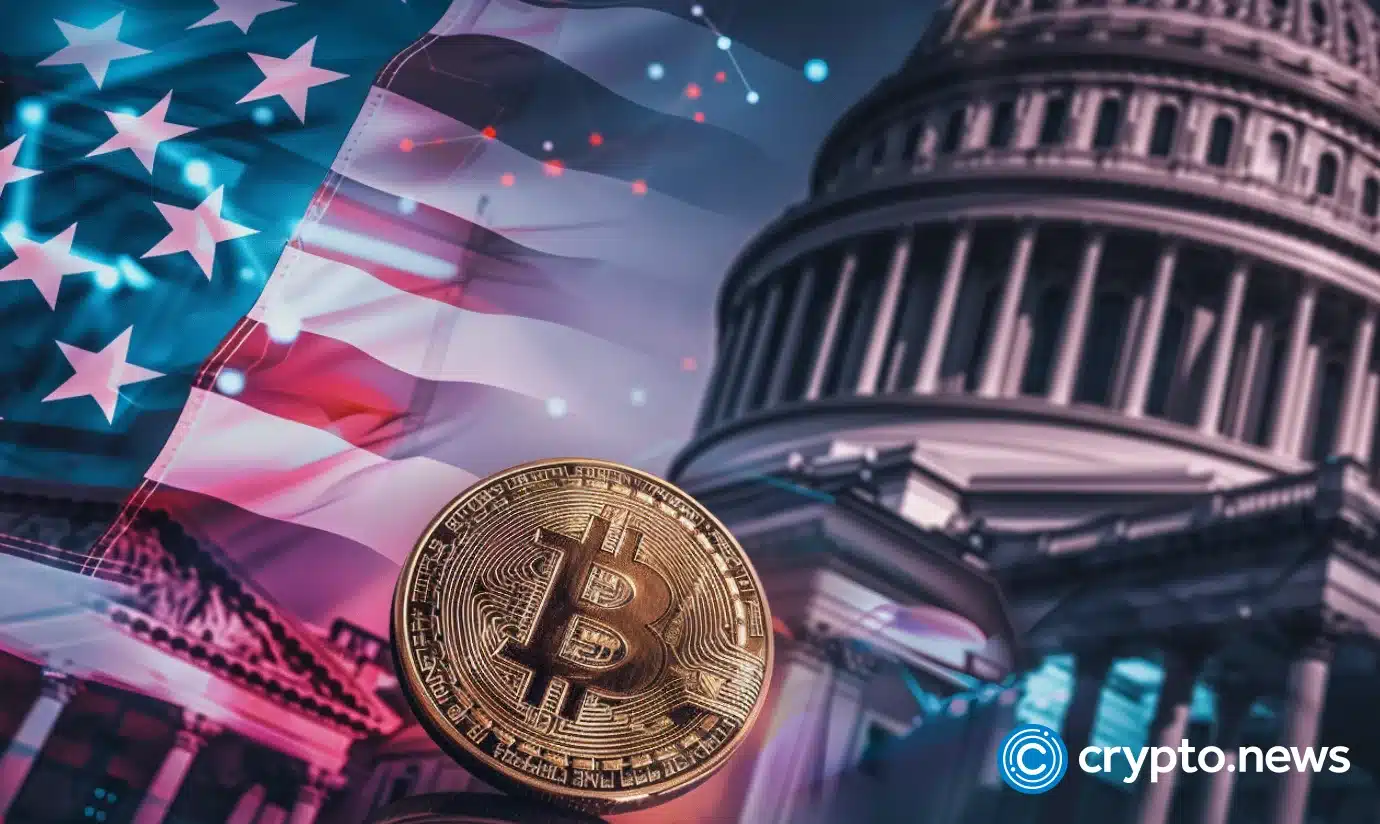
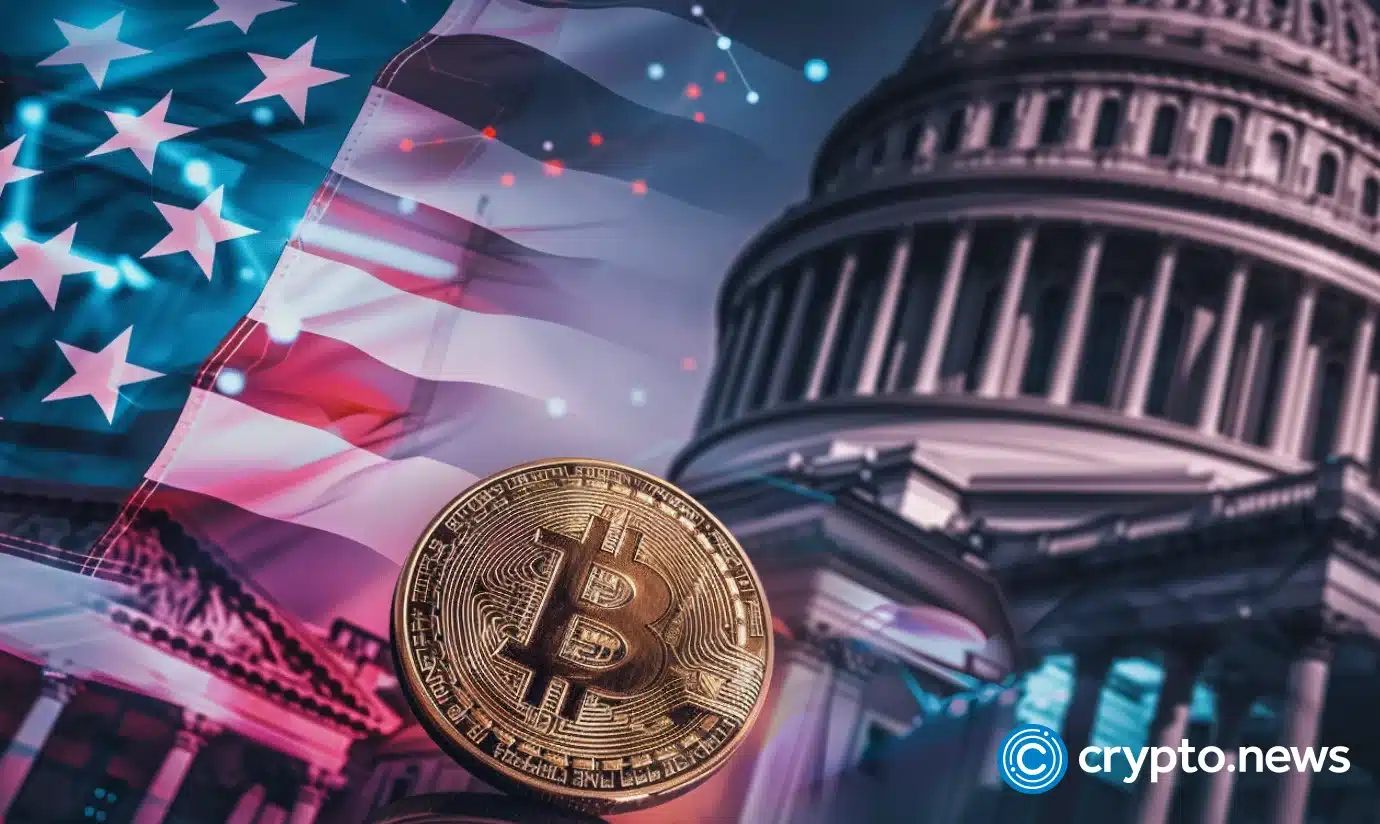
At Bitcoin 2024, Senator Cynthia Lummis proposed a more detailed plan for a strategic Bitcoin reserve to bolster the U.S. dollar and cement America’s global financial leadership.
After days of anticipation, United States Senator Cynthia Lummis finally announced her proposed legislation to establish a strategic Bitcoin (BTC) reserve. Lummis stated that the proposal is aimed at bolstering the U.S. dollar against inflation and cementing America’s leadership in the global financial system.
The announcement, made yesterday, July 27, the last day of Bitcoin 2024 in Nashville, came amid a wave of pro-crypto sentiment, amplified by a keynote address from former president Donald Trump, in which he expressed strong support for the cryptocurrency industry. Toward the end of his speech, Trump also revealed a plan to create a national Bitcoin reserve in the U.S., but didn’t elaborate on the proposal.
Bitcoin to shore up USD’s global position
Following Trump’s announcement, Lummis took the stage and explained that the Bitcoin reserve proposal seeks to secure the U.S. dollar’s position as the world’s reserve currency by incorporating Bitcoin into the nation’s strategic reserves.
“Establishing a strategic Bitcoin reserve would firmly secure the dollar’s position as the world’s reserve currency into the 21st century and ensure we remain the world leader in financial innovation,” said the senator for Wyoming.
Her plan involves the U.S. Treasury Department creating a decentralized network of secure Bitcoin vaults, acquiring one million Bitcoin over a set period, and holding these assets for at least 20 years.
The only permissible use of this reserve would be to pay down the national debt, with funding sourced by diversifying existing Federal Reserve and Treasury Department funds, Lummis elaborated.
In her speech, the Senator highlighted the urgency of the initiative by pointing to the economic challenges facing American families and the country’s soaring debt levels:
“Families across Wyoming and the U.S. are struggling to keep up with soaring inflation rates and record-breaking costs while our national debt reaches unprecedented levels; now more than ever, we need to create a brighter future for generations of Americans by diversifying into Bitcoin and securing our economic future.”
U.S. Senator Cynthia Lummis, speaking at Bitcoin 2024 in Nashville on July 27
Trump promises national Bitcoin stockpile
The senator’s announcement came immediately after former President Donald Trump took the stage to deliver his highly anticipated keynote address. Trump, who kept attendees waiting for an hour — evidently while his security team did final checks — used the opportunity to reiterate his commitment to transforming the U.S. into the global leader in cryptocurrency.
The Republican candidate for the 2024 presidential race also announced his plan to establish a “strategic national Bitcoin stockpile” if elected.
He said he would make it a policy in his administration to hold all of the Bitcoin currently in the custody of the United States and any it may acquire in the future. The accumulated coins will then serve as the core of the strategic national Bitcoin reserve.
Trump also promised to overhaul the current regulatory environment, including the dismissal of the current Securities and Exchange Commission Chair, Gary Gensler, who has been criticized for his aggressive approach toward the crypto industry.
The back-to-back announcements from Trump and Lummis have injected significant momentum into the crypto discourse, signaling a potential shift in the U.S. approach to digital assets.
Source link

BTC Risks Falling To $20K If This Happens

Most Layer 2 solutions are still struggling with scalability

Here’s why Stellar Price Could Go Parabolic Soon

Perp-Focused HyperLiquid Experiences Record $60M in USDC Net Outflows

Experts say these 3 altcoins will rally 3,000% soon, and XRP isn’t one of them

Robert Kiyosaki Hints At Economic Depression Ahead, What It Means For BTC?

BNB Steadies Above Support: Will Bullish Momentum Return?

Metaplanet makes largest Bitcoin bet, acquires nearly 620 BTC

Tron’s Justin Sun Offloads 50% ETH Holdings, Ethereum Price Crash Imminent?

Investors bet on this $0.0013 token destined to leave Cardano and Shiba Inu behind

End of Altcoin Season? Glassnode Co-Founders Warn Alts in Danger of Lagging Behind After Last Week’s Correction

Can Pi Network Price Triple Before 2024 Ends?

XRP’s $5, $10 goals are trending, but this altcoin with 7,400% potential takes the spotlight

CryptoQuant Hails Binance Reserve Amid High Leverage Trading

Trump Picks Bo Hines to Lead Presidential Crypto Council
182267361726451435

Why Did Trump Change His Mind on Bitcoin?

Top Crypto News Headlines of The Week

New U.S. president must bring clarity to crypto regulation, analyst says

Will XRP Price Defend $0.5 Support If SEC Decides to Appeal?

Bitcoin Open-Source Development Takes The Stage In Nashville

Ethereum, Solana touch key levels as Bitcoin spikes

Bitcoin 20% Surge In 3 Weeks Teases Record-Breaking Potential

Ethereum Crash A Buying Opportunity? This Whale Thinks So

Shiba Inu Price Slips 4% as 3500% Burn Rate Surge Fails to Halt Correction

Washington financial watchdog warns of scam involving fake crypto ‘professors’

‘Hamster Kombat’ Airdrop Delayed as Pre-Market Trading for Telegram Game Expands

Citigroup Executive Steps Down To Explore Crypto
Mostbet Güvenilir Mi – Casino Bonus 2024

NoOnes Bitcoin Philosophy: Everyone Eats
Trending

 3 months ago
3 months ago182267361726451435

 Donald Trump5 months ago
Donald Trump5 months agoWhy Did Trump Change His Mind on Bitcoin?

 24/7 Cryptocurrency News4 months ago
24/7 Cryptocurrency News4 months agoTop Crypto News Headlines of The Week

 News4 months ago
News4 months agoNew U.S. president must bring clarity to crypto regulation, analyst says

 Price analysis4 months ago
Price analysis4 months agoWill XRP Price Defend $0.5 Support If SEC Decides to Appeal?

 Opinion5 months ago
Opinion5 months agoBitcoin Open-Source Development Takes The Stage In Nashville

 Bitcoin5 months ago
Bitcoin5 months agoEthereum, Solana touch key levels as Bitcoin spikes

 Bitcoin5 months ago
Bitcoin5 months agoBitcoin 20% Surge In 3 Weeks Teases Record-Breaking Potential


